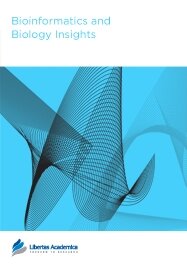

Publication Date: 18 Mar 2013
Type: Original Research
Journal: Bioinformatics and Biology Insights
Citation: Bioinformatics and Biology Insights 2013:7 119-131
doi: 10.4137/BBI.S11184

Understanding the effects of genetic variation on the phenotype of an individual is a major goal of biomedical research, especially for the development of diagnostics and effective therapeutic solutions. In this work, we describe the use of a recent knowledge discovery from database (KDD) approach using inductive logic programming (ILP) to automatically extract knowledge about human monogenic diseases. We extracted background knowledge from MSV3d, a database of all human missense variants mapped to 3D protein structure. In this study, we identified 8,117 mutations in 805 proteins with known three-dimensional structures that were known to be involved in human monogenic disease. Our results help to improve our understanding of the relationships between structural, functional or evolutionary features and deleterious mutations. Our inferred rules can also be applied to predict the impact of any single amino acid replacement on the function of a protein. The interpretable rules are available at http://decrypthon.igbmc.fr/kd4v/.
PDF (1.12 MB PDF FORMAT)
RIS citation (ENDNOTE, REFERENCE MANAGER, PROCITE, REFWORKS)
BibTex citation (BIBDESK, LATEX)
XML
PMC HTML
KD4v Interpretable Rules

Bioinformatics and Biology Insights fills a gap in current journals. Ever more often, bioinformatics and detailed analysis of data creates novel, unexpected insights. It is good to have a journal which focusses on exactly this aspect of bioinformatics research, putting the biology insights upfront with high respect for the different methods in bioinformatics.
Facebook Google+ Twitter
Pinterest Tumblr YouTube